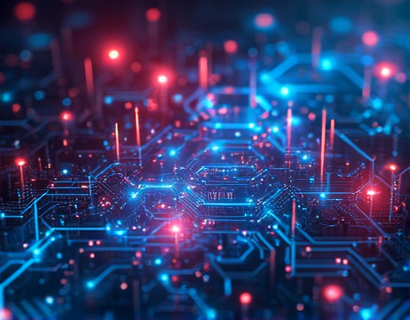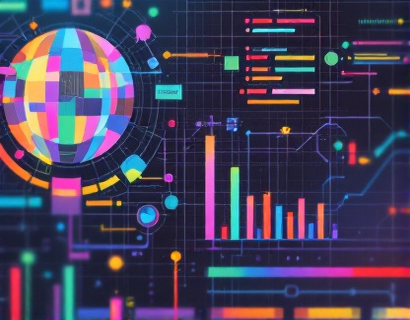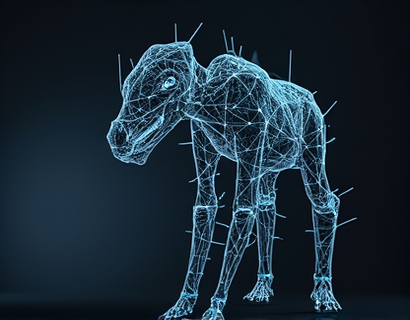Decentralized Authentication: Elevating Business Security and Streamlining Access with Advanced Technology Solutions
In the digital age, the importance of robust security measures cannot be overstated. As businesses increasingly rely on digital platforms to conduct operations, the need for advanced identity management solutions has become paramount. Decentralized authentication stands out as a transformative technology, offering enhanced security and streamlined access control. This approach leverages cutting-edge advancements to ensure that sensitive data remains protected while providing users with a seamless experience.
Decentralized authentication, also known as decentralized identity management, operates on a fundamentally different principle compared to traditional centralized systems. In a centralized model, a single entity, often a server or a database, holds and manages all user credentials and identity information. This central point of control, while convenient, poses significant risks. A breach in this central system can lead to widespread compromise of user data and unauthorized access to critical systems. Decentralized authentication mitigates these risks by distributing identity management across a network of nodes, eliminating the single point of failure.
The core concept of decentralized authentication revolves around blockchain technology and distributed ledgers. These technologies ensure that identity data is stored across multiple nodes, making it extremely difficult for malicious actors to alter or steal. Each user has control over their own identity, storing credentials in a secure, encrypted format. This shift not only enhances security but also empowers users by giving them ownership of their digital identities.
One of the primary benefits of decentralized authentication is the significant improvement in data protection. Traditional centralized systems are vulnerable to large-scale data breaches, where hackers can gain access to vast amounts of user information in a single strike. In contrast, decentralized systems store data in a fragmented manner, reducing the impact of any potential breach. Even if one node is compromised, the overall system remains secure due to the redundancy and encryption of data across multiple nodes.
Moreover, decentralized authentication enhances compliance with regulatory standards. With the increasing number of data protection regulations globally, businesses must ensure they meet stringent requirements for handling user data. Decentralized solutions provide a transparent and auditable trail of identity management processes, making it easier to demonstrate compliance. This transparency builds trust with customers and stakeholders, as they can verify that their data is handled securely and in accordance with legal standards.
The implementation of decentralized authentication also leads to improved operational efficiency. Traditional authentication methods often involve complex and time-consuming processes, especially in large organizations with numerous departments and systems. Decentralized solutions streamline these processes by providing a unified and automated identity management system. This reduces the administrative burden, allowing IT teams to focus on more strategic tasks rather than managing user credentials and access rights.
Another significant advantage is the enhanced user experience. Users no longer need to remember multiple passwords or go through cumbersome login procedures. With decentralized authentication, users can securely access various services and applications using a single, decentralized identity. This not only simplifies the user experience but also reduces the risk of password-related security issues, such as weak passwords or password reuse.
To fully leverage the benefits of decentralized authentication, businesses should consider integrating advanced technology solutions that support this paradigm. These solutions typically include decentralized identity protocols, secure multi-party computation, and zero-knowledge proofs. Such technologies ensure that identity verification can occur without revealing sensitive information, maintaining user privacy while ensuring security.
For instance, decentralized identity protocols like Self-Sovereign Identity (SDI) allow users to manage their digital identities independently. SDI enables individuals to create, control, and share their identity data as they see fit, without relying on intermediaries. This approach not only empowers users but also reduces the dependency on centralized authorities, fostering a more decentralized and equitable digital ecosystem.
Secure multi-party computation (SMPC) is another critical technology in decentralized authentication. SMPC allows multiple parties to jointly perform computations on their data without revealing the data itself. This means that authentication processes can be conducted securely, with each party contributing to the verification without exposing sensitive information. This technology is particularly useful in scenarios where multiple organizations need to collaborate on identity verification while maintaining data privacy.
Zero-knowledge proofs (ZKPs) further enhance the security and privacy of decentralized authentication. ZKPs enable one party to prove to another that a statement is true without revealing any information beyond the truth of that statement. In the context of authentication, this means a user can prove their identity and permissions without disclosing their actual credentials. This not only protects user data but also builds trust among users and service providers.
Implementing decentralized authentication solutions requires careful planning and consideration of various factors. Organizations must assess their current infrastructure and identify the specific needs and challenges they face. It is essential to choose the right technology stack that aligns with their goals and ensures interoperability with existing systems. Additionally, educating users about the benefits and usage of decentralized authentication is crucial for a smooth transition.
One of the key challenges in adopting decentralized authentication is the initial setup and integration with existing systems. This process can be complex and resource-intensive, requiring expertise in blockchain and distributed systems. However, the long-term benefits far outweigh the initial investment. By gradually integrating decentralized solutions, businesses can mitigate risks and ensure a smoother transition.
Another consideration is the scalability of decentralized authentication systems. As businesses grow, their identity management needs will evolve, and the system must be able to scale accordingly. Selecting solutions that are designed for scalability and can handle increasing loads without compromising performance is vital. This ensures that the system remains efficient and reliable, even as the user base expands.
Interoperability is also a critical factor. In a world where users interact with multiple services and platforms, decentralized authentication solutions must be compatible with various systems and standards. This ensures a seamless experience for users as they move between different services, without the need for redundant authentication processes. Standards like Decentralized Identifiers (DIDs) and Verifiable Credentials (VC) play a crucial role in achieving this interoperability.
Furthermore, the adoption of decentralized authentication can drive innovation in other areas of business operations. For example, it can enhance customer relationship management by providing a secure and consistent way to manage customer identities across different touchpoints. This unified view of customer identities can lead to more personalized and efficient service delivery, improving customer satisfaction and loyalty.
In the realm of enterprise partnerships, decentralized authentication facilitates secure and trustless collaborations. Businesses can share sensitive information and collaborate on projects without compromising data security. This is particularly valuable in industries such as finance, healthcare, and supply chain management, where data integrity and privacy are paramount.
Looking ahead, the future of decentralized authentication is promising. As more organizations recognize the advantages of this approach, we can expect to see widespread adoption and further advancements in technology. The development of more user-friendly interfaces, increased regulatory support, and the integration of artificial intelligence and machine learning will continue to enhance the capabilities of decentralized authentication systems.
In conclusion, decentralized authentication represents a significant leap forward in business security and efficiency. By providing advanced identity management that ensures seamless user experiences and robust data protection, these solutions are essential for modern enterprises. As businesses navigate the complexities of the digital landscape, embracing decentralized authentication will not only safeguard sensitive data but also drive operational excellence and innovation.











































